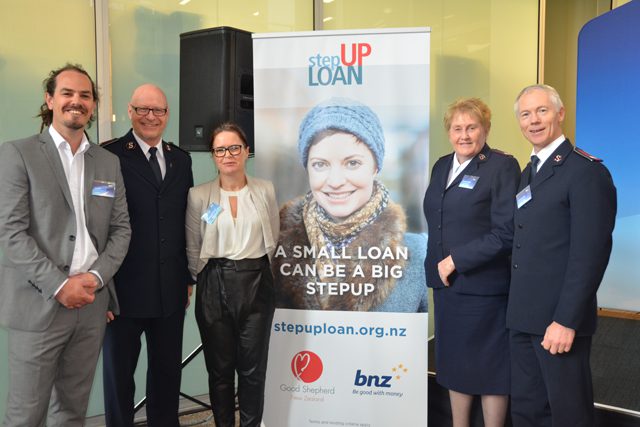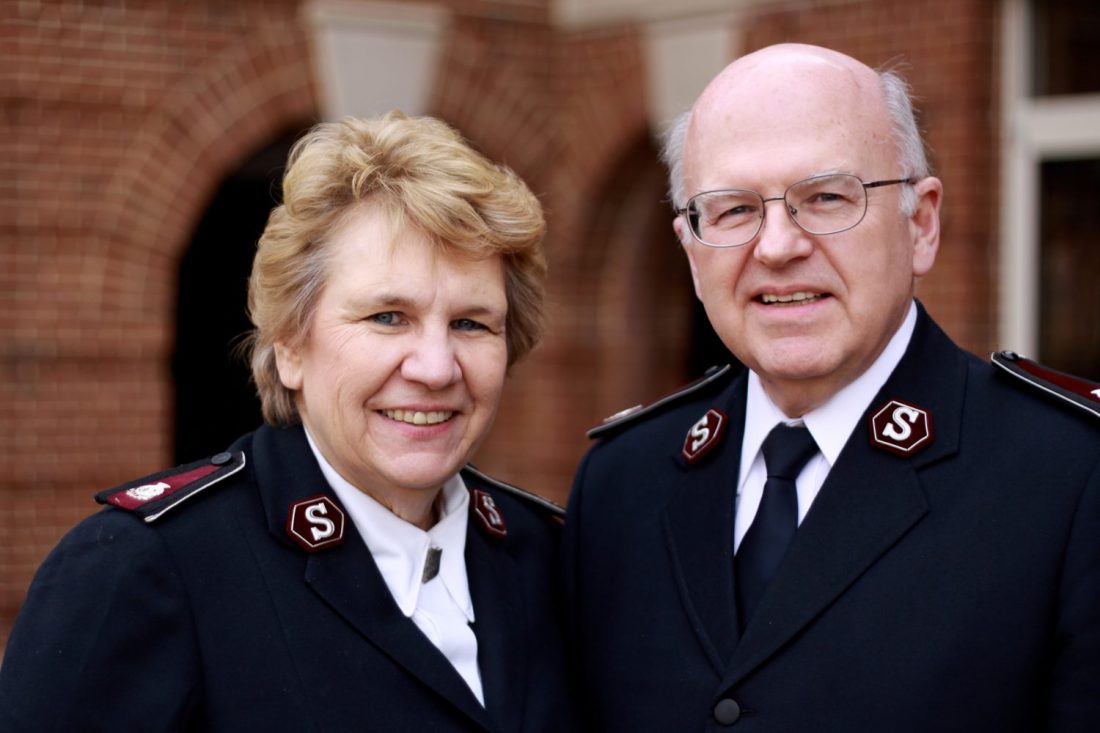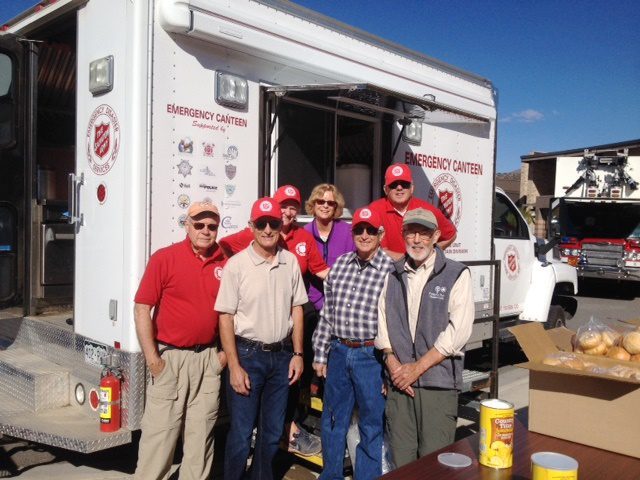Listen to this article
Listen to this article
Loading
Play
Pause
Options
0:00
-:--
1x
Playback Speed- 0.5
- 0.6
- 0.7
- 0.8
- 0.9
- 1
- 1.1
- 1.2
- 1.3
- 1.5
- 2
Audio Language
- English
- French
- German
- Italian
- Spanish
Open text
from all angles. “if you want to be effective at changing someone’s life, you’ll have to partner.” – adrian tirtanadi, bayview hunters point community legal executive director and co-founder. collaboration addresses immediate legal needs and the underlying causes. on affordability and accessibility, the world justice project ranks the united states’ civil justice system 64th in the world. when clients walk into the salvation army office in san francisco’s bayview neighborhood, they might be expecting to be greeted with a thick packet of intake forms to wade through. instead, they are offered a sleek ipad. are you looking for legal aid? do you have an upcoming court case? do you know your credit score? have you ever been evicted? do you live in bayview? with each response entered by the client, salesforce, a cloud-based application, collects demographics and personal information, screens for legal and general case management eligibility and builds a detailed client profile. it may seem like a simple update on an old process, but this technology is actually key to a unique collaboration between salvation army social services staff and in-house legal partner bayview hunters point community legal (bhp cl). with shared data seamlessly captured, army staff can immediately begin to address social and economic needs, while bhp cl, gets right to work handling client legal services. together, the legal team is pioneering the country’s first system of universal access to legal representation here, with a belief that anti-poverty work cannot be divorced from access to justice. aside from office space, the organizations share clients and operations, and collaborate on a holistic approach to case management. for instance, trey hiller, director of the salvation army bayview, said his team works to address the underlying cause of a client’s legal issue. “clients see the manifestation but not the underlying causation,” hiller said. “if you are struggling with addiction and if you are struggling with your finances and your employment and you find yourself facing eviction, if we defend you in the eviction successfully, are we just prolonging the inevitable?”. hiller and his team have found that the responses clients give to some of the questions reveal more about their needs than the section of the intake form that allows clients to self-select needs. “this data from the intake automatically tells us a story,” hiller said. “we review the profile without looking at the self-selected need because we don’t want to be influenced by what the client says their needs are.”. services include financial counseling, assistance finding housing or enrolling in calworks and community college, and help completing the free application for federal student aid (fafsa). marcel shepard gardner is one of the 1,300 clients who has received case management from both organizations. a quick google search for legal aid with custody and child support matters brought him to the office. gardner was surprised it only took him 20 minutes to complete his intake form on the ipad. “the process was smooth,” he said. “they didn’t have to make a file and scan any paperwork. everything was all done right there on the spot.”. the salvation army began using ipads in bayview a year ago when it adopted salesforce, which has streamlined case collaboration. it allows both organizations to check staff calendars before booking client appointments. it keeps track of documents, creates tasks for the attorneys and salvation army staff, and keeps customer interactions up to date. while the salvation army can push data to bhp cl, and clients acknowledge this as part of the intake, the organizations do not sync data—an important note for privacy requirements. instead, the organizations collaboratively—but anonymously—track outcomes across agencies. with the exception of in-person office visits, all client communication is delivered electronically. if a client shows up without an email account, a staff member helps him or her set one up. michelle carrington, 64, opened her first email account four years ago at the bayview office. she now uses her email to book appointments and communicate with the attorneys and salvation army staff. carrington recently met with a financial advisor at the office. “he gave me a lot of ideas on how to save money, how to spend, how to budget,” carrington said. “he told me i should have a credit score. i don’t have any credit because i never really wanted credit. he gave a different outlook on credit and what it’s good for, the do’s and the don’ts.”. do good–find out how the salvation army meets need in your community at westernusa.salvationarmy.org – learn more about the efforts of bayview hunters point community legal, recipient of a 2015 google impact challenge grant, at bhpcommunitylegal.org. – explore the world justice project rule of law index 2016 for original data on how the rule of law is experienced by the general public in more than 100 countries at worldjusticeproject.org. the legal issues carrington originally arrived with have been resolved. she says she’s thankful that bhp cl and the salvation army are in the neighborhood. “we had no one here helping us with these issues, with housing, with any kind of problems we come across in everyday life,” carrington said. “god sent these people here to help us, and i am just so grateful. they show compassion, they are very caring and made me shed tears quite a few times because of their dedication and commitment.”. the salvation army and bhp cl will leave their current, crowded office for a larger space down the street as early as next year. today, a total of three full-time staff and two volunteers work for the salvation army. they share interns with the legal aid staff, which has gone from two attorneys to eight since 2013. adrian tirtanadi, bhp cl executive director and co-founder, hopes the new space will allow the salvation army and his team to partner with even more organizations. “if you want to be effective at changing someone’s life,” he said, “you’ll have to partner.”. in san francisco’s bayview neighborhood, a shared office houses the salvation army and bayview hunters point community legal. the two organizations collaborate on cases, offering legal aid and services to address the underlying cause of clients’ legal issues. 1,300 clients have received case management from both the salvation army and bayview hunters point community legal since the organizations partnered up in 2013. 33% of americans cannot afford private legal fees. across the country, only 1 legal aid attorney exists for every 6,500 eligible, low-income americans. litigants are up to 10 times more likely to win if they have representation. source: bayview hunters point community legal.
Open context player
Close context player
Plays:-Audio plays count
from all angles. “if you want to be effective at changing someone’s life, you’ll have to partner.” – adrian tirtanadi, bayview hunters point community legal executive director and co-founder. collaboration addresses immediate legal needs and the underlying causes. on affordability and accessibility, the world justice project ranks the united states’ civil justice system 64th in the world. when clients walk into the salvation army office in san francisco’s bayview neighborhood, they might be expecting to be greeted with a thick packet of intake forms to wade through. instead, they are offered a sleek ipad. are you looking for legal aid? do you have an upcoming court case? do you know your credit score? have you ever been evicted? do you live in bayview? with each response entered by the client, salesforce, a cloud-based application, collects demographics and personal information, screens for legal and general case management eligibility and builds a detailed client profile. it may seem like a simple update on an old process, but this technology is actually key to a unique collaboration between salvation army social services staff and in-house legal partner bayview hunters point community legal (bhp cl). with shared data seamlessly captured, army staff can immediately begin to address social and economic needs, while bhp cl, gets right to work handling client legal services. together, the legal team is pioneering the country’s first system of universal access to legal representation here, with a belief that anti-poverty work cannot be divorced from access to justice. aside from office space, the organizations share clients and operations, and collaborate on a holistic approach to case management. for instance, trey hiller, director of the salvation army bayview, said his team works to address the underlying cause of a client’s legal issue. “clients see the manifestation but not the underlying causation,” hiller said. “if you are struggling with addiction and if you are struggling with your finances and your employment and you find yourself facing eviction, if we defend you in the eviction successfully, are we just prolonging the inevitable?”. hiller and his team have found that the responses clients give to some of the questions reveal more about their needs than the section of the intake form that allows clients to self-select needs. “this data from the intake automatically tells us a story,” hiller said. “we review the profile without looking at the self-selected need because we don’t want to be influenced by what the client says their needs are.”. services include financial counseling, assistance finding housing or enrolling in calworks and community college, and help completing the free application for federal student aid (fafsa). marcel shepard gardner is one of the 1,300 clients who has received case management from both organizations. a quick google search for legal aid with custody and child support matters brought him to the office. gardner was surprised it only took him 20 minutes to complete his intake form on the ipad. “the process was smooth,” he said. “they didn’t have to make a file and scan any paperwork. everything was all done right there on the spot.”. the salvation army began using ipads in bayview a year ago when it adopted salesforce, which has streamlined case collaboration. it allows both organizations to check staff calendars before booking client appointments. it keeps track of documents, creates tasks for the attorneys and salvation army staff, and keeps customer interactions up to date. while the salvation army can push data to bhp cl, and clients acknowledge this as part of the intake, the organizations do not sync data—an important note for privacy requirements. instead, the organizations collaboratively—but anonymously—track outcomes across agencies. with the exception of in-person office visits, all client communication is delivered electronically. if a client shows up without an email account, a staff member helps him or her set one up. michelle carrington, 64, opened her first email account four years ago at the bayview office. she now uses her email to book appointments and communicate with the attorneys and salvation army staff. carrington recently met with a financial advisor at the office. “he gave me a lot of ideas on how to save money, how to spend, how to budget,” carrington said. “he told me i should have a credit score. i don’t have any credit because i never really wanted credit. he gave a different outlook on credit and what it’s good for, the do’s and the don’ts.”. do good–find out how the salvation army meets need in your community at westernusa.salvationarmy.org – learn more about the efforts of bayview hunters point community legal, recipient of a 2015 google impact challenge grant, at bhpcommunitylegal.org. – explore the world justice project rule of law index 2016 for original data on how the rule of law is experienced by the general public in more than 100 countries at worldjusticeproject.org. the legal issues carrington originally arrived with have been resolved. she says she’s thankful that bhp cl and the salvation army are in the neighborhood. “we had no one here helping us with these issues, with housing, with any kind of problems we come across in everyday life,” carrington said. “god sent these people here to help us, and i am just so grateful. they show compassion, they are very caring and made me shed tears quite a few times because of their dedication and commitment.”. the salvation army and bhp cl will leave their current, crowded office for a larger space down the street as early as next year. today, a total of three full-time staff and two volunteers work for the salvation army. they share interns with the legal aid staff, which has gone from two attorneys to eight since 2013. adrian tirtanadi, bhp cl executive director and co-founder, hopes the new space will allow the salvation army and his team to partner with even more organizations. “if you want to be effective at changing someone’s life,” he said, “you’ll have to partner.”. in san francisco’s bayview neighborhood, a shared office houses the salvation army and bayview hunters point community legal. the two organizations collaborate on cases, offering legal aid and services to address the underlying cause of clients’ legal issues. 1,300 clients have received case management from both the salvation army and bayview hunters point community legal since the organizations partnered up in 2013. 33% of americans cannot afford private legal fees. across the country, only 1 legal aid attorney exists for every 6,500 eligible, low-income americans. litigants are up to 10 times more likely to win if they have representation. source: bayview hunters point community legal.
Listen to this article

















